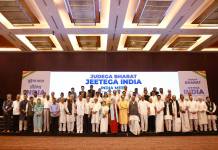The Supreme Court on Monday sent notices to Tata Power Delhi Distribution, BSES Rajdhani Power and BSES Yamuna Power on plea for CAG audit of private discoms.
The Aam Aadmi Party’s Delhi government had moved the Supreme Court challenging Delhi High Court’s October order on Comptroller and Auditor General of India’s failure to audit the accounts of the three companies.
The Supreme Court has asked the companies why their accounts should not be audited and directed the companies to file their response by 2 March on petitions filed by the CAG, the Delhi government and an NGO, seeking their audit.
Earlier, on 30 October, the Delhi High Court had quashed the executive decision to get the books of accounts of the three private power distribution companies in the capital scrutinised by the CAG.
A division bench of Chief Justice G. Rohini and Justice RS Endlaw had said: “There can be no other audit at the instance of state government” as there is already a watchdog, the Delhi Electricity Regulatory Commission, with powers to audit the accounts of discoms.
“All the power of state government relating to electricity now stand vested in DERC,” the bench said, slamming [Delhi CM Arvind] Kejriwal’s decision to audit the discoms as a “misguided exercise”.
The high court order came on pleas filed by the three discoms — Tata Power Delhi Distribution, BSES Rajdhani Power and BSES Yamuna Power — challenging the Delhi government’s 7 January 2014, order to get the CAG to audit their accounts.
“The Delhi government, instead of strengthening the DERC, we are constrained to observe, has undertaken a misguided exercise by issuing a direction to the CAG to audit the accounts of the discoms when the report of such audit would not have any sanctity in law for achieving the desired result,” the HC verdict reads.
“We are unable to decipher anything which DERC cannot and which CAG can unearth. DERC is neither found to be helpless nor dependent on the balance sheet filed by the discoms,” it added.
Audit of the discoms under the prevalent legal regime cannot serve the object of bringing down power tariff, “even if were to find that the allegations (of inflating their previous losses) against the discoms to be true”, the HC said.
The bench said after re-enactment of law relating to the power sector and having substituted the powers of the state government with that of the regulator, it was unable to find any purpose which a report of the official auditor will serve under direction of the Delhi government.
“Once the discoms, before incurring any expenditure above a limit, are required to obtain the prior approval of the DERC, and therefore, once the DERC approves the said expenditure, we fail to see how the CAG can be allowed to arrive at a different conclusion,” the bench said in its 139-page judgement.
The discoms, which supply power to consumers in the capital, argued that they were private companies and hence not in the ambit of such an audit. They alleged that the Delhi government’s order was a “political ploy” and was passed with “malice in law” without giving them an opportunity to be heard.
A draft report in August after the CAG’s audit into their books had reportedly said they inflated their previous losses.
The three private firms had come into being in 2002 when the then Congress party’s Delhi government decided to privatise power distribution. Delhi discoms are a 51:49 percent joint venture between the private companies and the Delhi government.
The Kejriwal government had argued that a CAG audit of private discoms was necessary to clarify alleged anomalies in their accounts and that it was not aimed at interfering with their functioning.
Reacting to the High Court decision on 30 October, AAP legislator Saurabh Bhardwaj had said the official auditor had already probed the books of these three companies and had found discrepancies. “I think all of you know that CAG audit is already over and it came to be known that the power discoms duped the people of Delhi of around Rs.8,000 crore,” he had said.
















